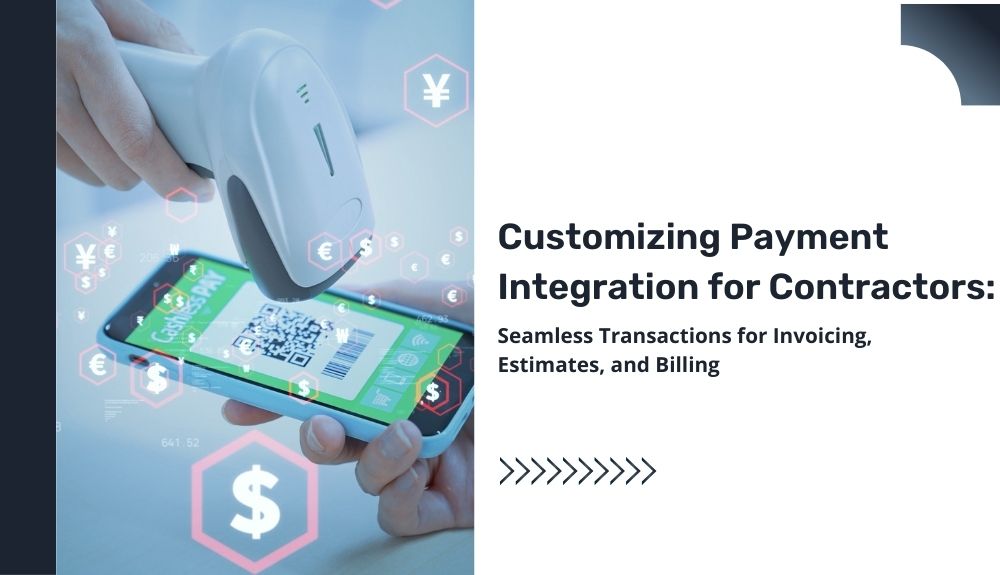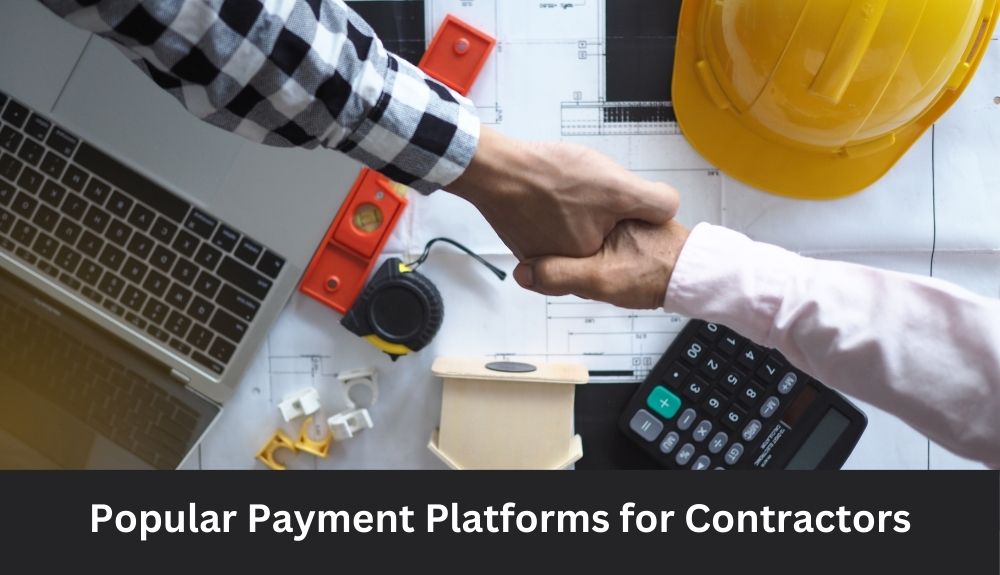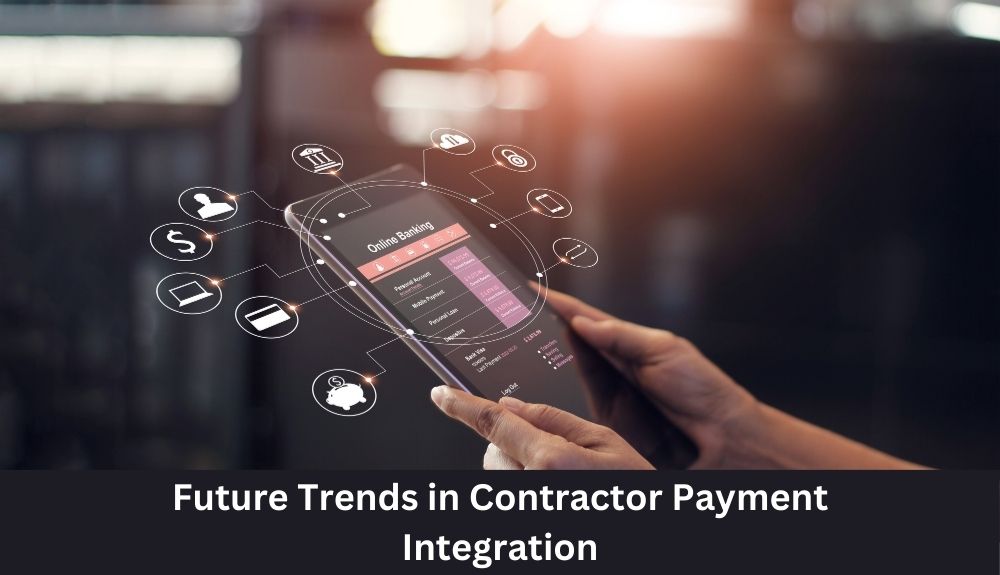
By alphacardprocess February 22, 2024
Introduction to Payment Integration for Contractors
Are you a contractor looking to streamline your payment processes and enhance client satisfaction? Customizing payment integration could be the game-changer you’ve been searching for. Say goodbye to manual invoicing headaches and embrace seamless transactions with the right payment platform tailored to your needs. Let’s explore how customizing payment integration can revolutionize the way contractors handle invoicing, estimates, and billing.
The Benefits of Customizing Payment Integration
When it comes to contractors, customizing payment integration can offer a plethora of benefits. By tailoring the payment process to fit your specific needs, you can streamline invoicing, estimates, and billing seamlessly. Customization allows you to choose the most suitable payment platforms that align with your business model and cater to your clients’ preferences.
One major advantage of customization is the ability to create a branded experience for your customers. From personalized invoices to integrated payment options on your website, custom solutions enhance professionalism and trust with clients.
Moreover, tailored payment integrations can improve cash flow management by automating recurring payments or setting up installment plans for larger projects. This not only saves time but also ensures consistent revenue streams for your contracting business.
In addition, customized solutions often come with advanced reporting capabilities that provide valuable insights into financial performance and customer behavior. This data-driven approach enables you to make informed decisions and optimize your business strategies for growth in the long run.
Popular Payment Platforms for Contractors

Payment platforms play a crucial role in streamlining financial transactions for contractors. One popular choice among contractors is PayPal, known for its user-friendly interface and widespread acceptance. With features like invoicing and payment tracking, PayPal simplifies the payment process.
Another commonly used platform is Square, offering seamless integration with point-of-sale systems and online payments. Contractors appreciate its flexibility and transparent fee structure. Additionally, QuickBooks Payments provides an all-in-one solution for invoicing, estimates, and billing. Its integration with accounting software makes managing finances effortless.
For those seeking a more specialized platform, Jobber offers robust features tailored specifically to contractors’ needs. From creating quotes to accepting payments on-site, Jobber caters to every aspect of contractor businesses. Choosing the right payment platform depends on individual preferences and business requirements.
How to Create a Seamless Payment Process for Invoicing, Estimates, and Billing
Creating a seamless payment process for contractors can streamline your invoicing, estimates, and billing procedures. Start by selecting a payment integration solution that aligns with your specific business needs. Ensure the platform integrates smoothly with your existing software and offers secure transactions.
Customize the payment portal to reflect your brand identity for a professional touch. Providing multiple payment options like credit cards, bank transfers, or digital wallets can cater to diverse client preferences. Automate recurring payments to save time on manual processing and improve cash flow management.
Offer clients transparent pricing breakdowns in their invoices to build trust and reduce disputes. Implement real-time notifications for successful payments to keep both parties informed throughout the transaction process. By optimizing these steps, you can enhance efficiency and customer satisfaction within your contracting business.
Tips for Choosing the Right Payment Integration Solution
When it comes to choosing the right payment integration solution for your contracting business, there are a few key factors to consider. First and foremost, think about the specific needs of your business. Do you require recurring billing options or customizable invoicing templates? Understanding your requirements will help narrow down your choices.
Next, consider the ease of use and compatibility with your existing systems. Look for a payment platform that seamlessly integrates with your accounting software and project management tools to streamline processes. Additionally, prioritize security features to protect both yours and your clients’ sensitive information.
Don’t forget about fees – compare transaction costs, monthly subscriptions, and any additional charges to find a solution that aligns with your budget. Read reviews and seek recommendations from other contractors in the industry to gain insights into user experience and customer support quality.
By taking these tips into account, you can make an informed decision when selecting the right payment integration solution for smooth transactions in invoicing, estimates, and billing.
Future Trends in Contractor Payment Integration

As technology continues to advance, the future of contractor payment integration looks promising. One trend that is gaining traction is the use of mobile payment solutions, allowing contractors to accept payments on-the-go seamlessly. With the rise of contactless payments and digital wallets, contractors can offer more convenient options to their clients.
Another emerging trend is the integration of AI and machine learning algorithms in payment processing systems. These technologies can help streamline invoicing processes, detect fraud, and provide valuable insights into financial data for contractors.
Blockchain technology also holds potential for secure and transparent transactions in the contractor industry. By utilizing blockchain-based platforms, contractors can ensure trust and security in their payment transactions.
Furthermore, we can expect increased personalization in payment integration systems tailored to meet the specific needs of individual contractors. This customization will enhance efficiency and improve overall user experience in managing finances within contracting businesses.
Conclusion
In the ever-evolving world of contractor payment integration, customization is key to streamlining transactions and improving efficiency. By tailoring payment solutions to meet specific needs, contractors can enjoy a seamless process for invoicing, estimates, and billing.
Choosing the right payment platform is crucial in ensuring smooth transactions. Whether it’s integrating with popular options like PayPal or Square, or opting for specialized software designed for contractors, selecting the best fit for your business is essential.
Looking ahead, future trends in contractor payment integration are likely to focus on enhancing security measures, increasing automation capabilities, and providing more personalized user experiences. Staying informed about these developments will be vital for staying competitive in the industry.
By customizing payment integration processes, contractors can not only improve their operational efficiency but also enhance customer satisfaction by offering convenient and secure transaction options. Embracing these advancements will undoubtedly pave the way for success in the ever-changing landscape of contracting services.